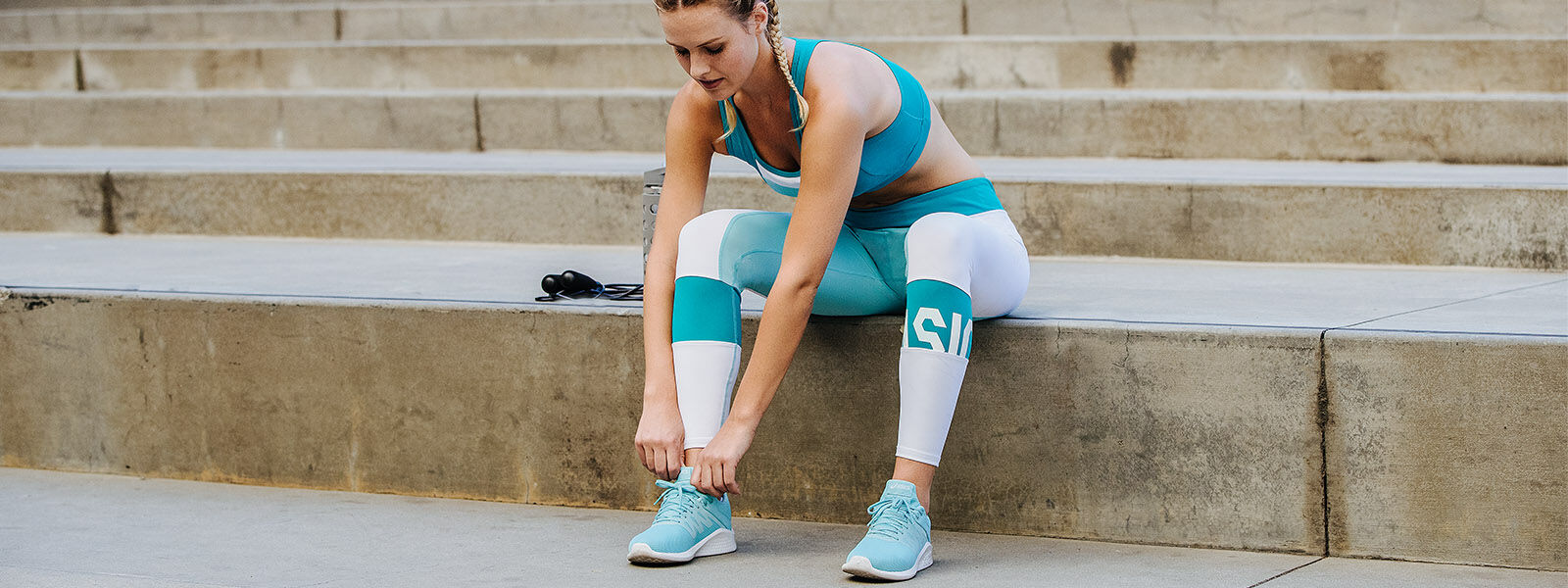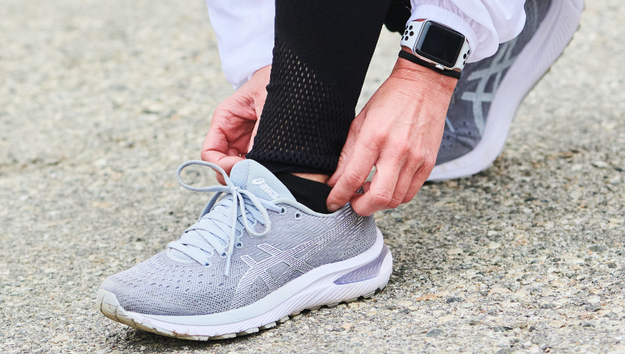Run tracking apps like strava allow you to add your running shoes to your profile so you can review your mileage to see if it’s time to invest in a new pair. However, if your running shoes are not showing any of the above signs of excessive wear, you may be able to wear them for longer without increasing the risk of injury. How often do you change your running shoes.
How Often Do You Change Your Running Shoes, Swapping out shoes at 400 or 500 miles is probably still a good idea, but don’t swap out an aging shoe because you liked how it felt fresh out of the box—shoot for shoes that feel good on your feet after 100 or 200 miles of running, since this is when a shoe starts to “bottom out” in its cushioning loss. For runners though, a good guideline for replacing trainers is after you’ve done “about 500 miles in them”. If you’re on the heavier runner or have poor biomechanics, then you should probably look at changing your running shoes after about 600km’s or 400 miles. However, if your running shoes are not showing any of the above signs of excessive wear, you may be able to wear them for longer without increasing the risk of injury.
 How Often Should You Replace your Running Shoes? — Runner From pinterest.com
How Often Should You Replace your Running Shoes? — Runner From pinterest.com
The exact answer will depend on a number of factors, but in general, experts recommend replacing your sneakers every 300 to 500 miles (that’s helpful if you use an app to track your runs) or every six to eight months, whichever comes first. How often should you replace your running shoes? Aim to switch up your kicks approximately every 500k, which may sound like a lot, but is actually only 50 10ks, which if you’re running multiple days of. You feel every rock and pebble now
However, depending on how you run and on what surface, “for.
Read another article:
Brooks, for example, comes right out. “most performance running shoes typically last about 300 to 400 miles, or four to six months.” those ranges are broad, though, and every shoe and situation is different. Most women runners are lighter than men so their shoes will also tend to last a bit longer and they should get closer to 1000km’s or 650 miles on them. The exact answer will depend on a number of factors, but in general, experts recommend replacing your sneakers every 300 to 500 miles (that’s helpful if you use an app to track your runs) or every six to eight months, whichever comes first. Obviously, the more you run in your shoes, the more frequently you’ll have to cycle onto a new pair.
 Source: asics.com
Source: asics.com
Longevity of running shoes depends a lot on how you are built, how well suited they are to your running gait and the type of shoe. When you try to stretch shoes out for longer than the recommended 300 to 500 miles, you are courting a running injury. Some pairs you may get more out of them, while others you�ll get less. Lets say you�ve had a pair of shoes for 12 months. When to change your running shoes? ASICS.
 Source: pinterest.com
Source: pinterest.com
Some people may find they get less than 200 and others more than 700. Obviously there can be factors on which this will depend, such as the surface you�re running on, your technique and, of course, the quality of the shoes in the first place. Why should you replace your running shoes regularly? Aim to switch up your kicks approximately every 500k, which may sound like a lot, but is actually only 50 10ks, which if you’re running multiple days of. How often should you replace your running shoes? This.
 Source: pinterest.com
Source: pinterest.com
The exact answer will depend on a number of factors, but in general, experts recommend replacing your sneakers every 300 to 500 miles (that’s helpful if you use an app to track your runs) or every six to eight months, whichever comes first. If you ask the big shoe brands how often you should replace your running kicks, they’re going to give you a mileage estimate. But experts generally advise that you get new running shoes every 300 to 500 miles. There is no set rule when it comes to replacing your running shoes. Here�s When You Should Replace Your Running Shoes The 4.
 Source: pinterest.com
Source: pinterest.com
As a general rule, you should consider changing your running shoes between every 400 to 500 miles. The exact answer will depend on a number of factors, but in general, experts recommend replacing your sneakers every 300 to 500 miles (that’s helpful if you use an app to track your runs) or every six to eight months, whichever comes first. That’s because it’s around this point that the midsole cushioning on most shoes will lose resiliency and stop absorbing shock as well as when newer, which can cause more impact on your muscles and joints. Photo by bruno nascimento on unsplash. How Often Should You Be Replacing Your Running Shoes.

If you ask the big shoe brands how often you should replace your running kicks, they’re going to give you a mileage estimate. For super active individuals, this time frame may be as short as three months. If you’re running 50 kilometres per week, just as an example, replacing your shoes every 800k means you’re making a trip to your nearest shoe store every four months. Swapping out shoes at 400 or 500 miles is probably still a good idea, but don’t swap out an aging shoe because you liked how it felt fresh out of the box—shoot for shoes that feel good on your feet after 100 or 200 miles of running, since this is when a shoe starts to “bottom out” in its cushioning loss. Signs Your Running Shoes Need to Be Replaced.
 Source: stephaniecoastalstyle.com
Source: stephaniecoastalstyle.com
When you try to stretch shoes out for longer than the recommended 300 to 500 miles, you are courting a running injury. Most women runners are lighter than men so their shoes will also tend to last a bit longer and they should get closer to 1000km’s or 650 miles on them. However, depending on how you run and on what surface, “for. However, if your running shoes are not showing any of the above signs of excessive wear, you may be able to wear them for longer without increasing the risk of injury. How Often Should You Replace Your Running Shoes.
 Source: pinterest.com
Source: pinterest.com
You should consider replacing your running shoes if you constantly need to adjust the laces to be tighter or to open them up, if your toes go numb or are chafing or if you develop hot spots or sore spots on your foot. “most performance running shoes typically last about 300 to 400 miles, or four to six months.” those ranges are broad, though, and every shoe and situation is different. If you ask the big shoe brands how often you should replace your running kicks, they’re going to give you a mileage estimate. The exact answer will depend on a number of factors, but in general, experts recommend replacing your sneakers every 300 to 500 miles (that’s helpful if you use an app to track your runs) or every six to eight months, whichever comes first. How Often Should You Replace Your Running Shoes? Running.
 Source: businessinsider.com
Source: businessinsider.com
How often should you replace your running shoes? Swapping out shoes at 400 or 500 miles is probably still a good idea, but don’t swap out an aging shoe because you liked how it felt fresh out of the box—shoot for shoes that feel good on your feet after 100 or 200 miles of running, since this is when a shoe starts to “bottom out” in its cushioning loss. If you own more than one pair and you�re rotating your shoes, you�ll get more life out of them than if you only had one pair (it�s also better for you). The exact answer will depend on a number of factors, but in general, experts recommend replacing your sneakers every 300 to 500 miles (that’s helpful if you use an app to track your runs) or every six to eight months, whichever comes first. When you should buy new running shoes Business Insider.
 Source: yourdailysportfix.com
Source: yourdailysportfix.com
However, shoes with tough and durable construction can be expected to last longer than the others. The exact answer will depend on a number of factors, but in general, experts recommend replacing your sneakers every 300 to 500 miles (that’s helpful if you use an app to track your runs) or every six to eight months, whichever comes first. If you’re running 50 kilometres per week, just as an example, replacing your shoes every 800k means you’re making a trip to your nearest shoe store every four months. Longevity of running shoes depends a lot on how you are built, how well suited they are to your running gait and the type of shoe. How Often Should You Replace Your Running Shoes.

Lets say you�ve had a pair of shoes for 12 months. Most experts recommend swapping out running shoes every 400 to 500 miles. Photo by bruno nascimento on unsplash. For runners though, a good guideline for replacing trainers is after you’ve done “about 500 miles in them”. The Iron You How Often Should I Replace My Running Shoes?.
 Source: asics.com
Source: asics.com
For super active individuals, this time frame may be as short as three months. Obviously, the more you run in your shoes, the more frequently you’ll have to cycle onto a new pair. Photo by bruno nascimento on unsplash. Most women runners are lighter than men so their shoes will also tend to last a bit longer and they should get closer to 1000km’s or 650 miles on them. How often to change running shoes ASICS.
 Source: hokaoneone.com
Source: hokaoneone.com
Lets say you�ve had a pair of shoes for 12 months. After a certain amount of use, the integrity of the shoe may be affected and that leads to the real reason to replace running shoes: There is no set rule when it comes to replacing your running shoes. There’s some disagreement about how usually it’s best to change your trainers, in addition to what the results of preserving them for too lengthy is likely to be. How Often Should You Replace Your Running Shoes? HOKA.
 Source: carmyy.com
Source: carmyy.com
That�s roughly every 300 to 500 miles, which equates to approximately four to six months for someone who runs 20 miles. However, depending on how you run and on what surface, “for. If you own more than one pair and you�re rotating your shoes, you�ll get more life out of them than if you only had one pair (it�s also better for you). How often should you replace your running shoes? How Often Should I Replace My Running Shoes? Carmy Run.
 Source: mensjournal.com
Source: mensjournal.com
If you ask the big shoe brands how often you should replace your running kicks, they’re going to give you a mileage estimate. There is no set rule when it comes to replacing your running shoes. If you’re on the heavier runner or have poor biomechanics, then you should probably look at changing your running shoes after about 600km’s or 400 miles. If you’re running 50 kilometres per week, just as an example, replacing your shoes every 800k means you’re making a trip to your nearest shoe store every four months. When Should You Really Replace Your Running Shoes? Men�s.
 Source: pinterest.com
Source: pinterest.com
So miles might not be the best way for you to measure unless you want to start up a spreadsheet to track step counts and distances. Most women runners are lighter than men so their shoes will also tend to last a bit longer and they should get closer to 1000km’s or 650 miles on them. Taking care of your shoe and cleaning it up regularly can also help lengthen its life a bit. The exact answer will depend on a number of factors, but in general, experts recommend replacing your sneakers every 300 to 500 miles (that’s helpful if you use an app to track your runs) or every six to eight months, whichever comes first. How Often Should You Replace your Running Shoes? — Runner.







